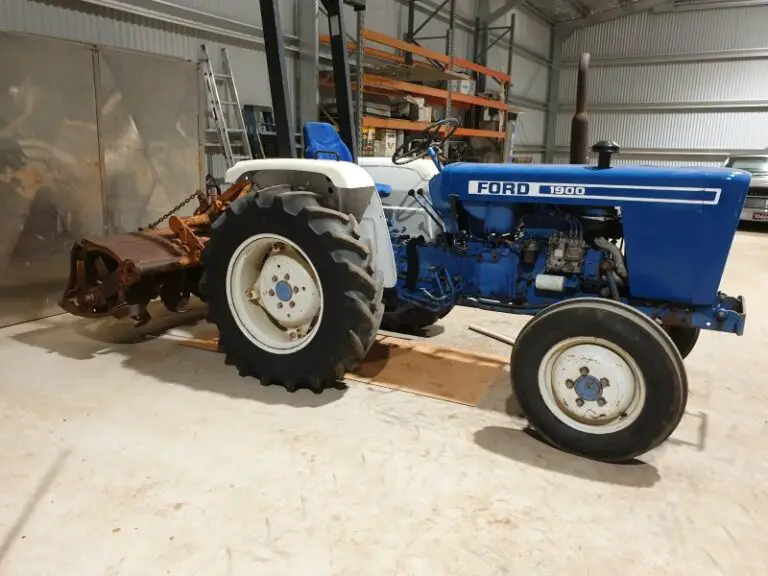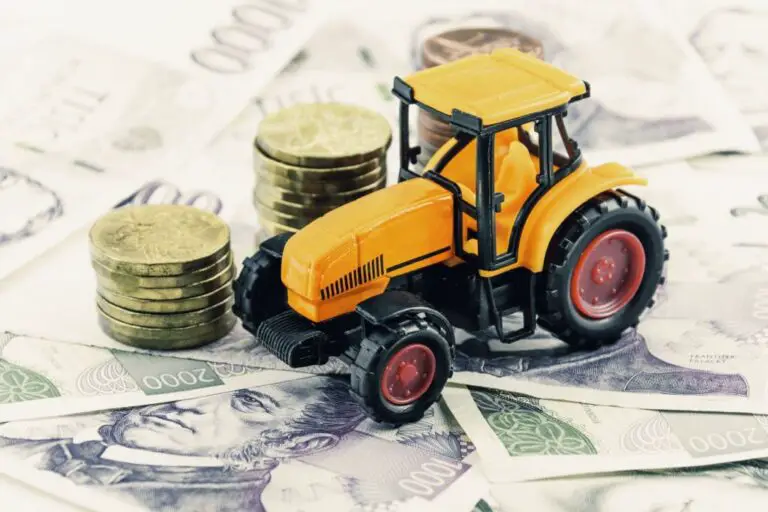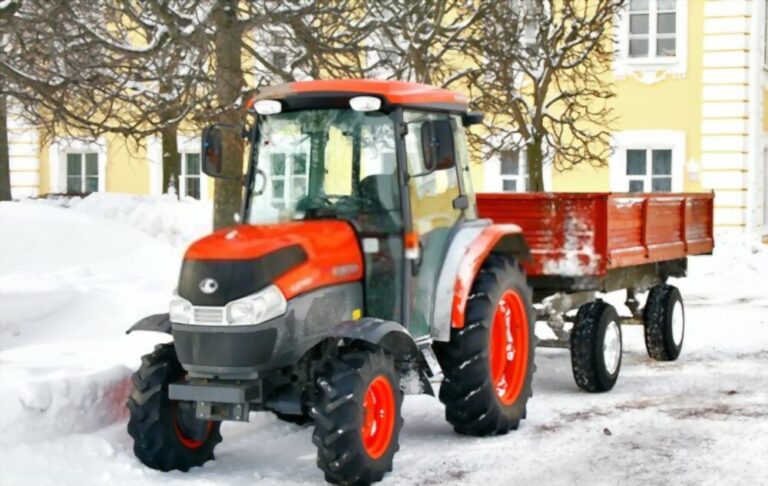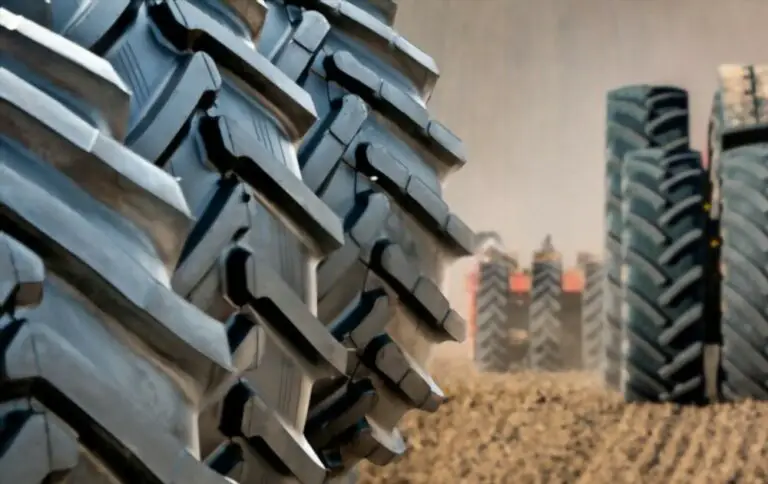Do Tractors Have Titles? Do you have to register a tractor in the US? Surprisingly, average tractors don’t have a title because tractors are hardly stolen. However, in some states in the US, heavy-duty tractors have titles.
Buying a tractor is nothing like buying a car; no paperwork is involved. You only get a receipt as proof of payment, like when you purchase groceries from a store.
Firstly, let’s understand what a title is.
Do Tractors Have Titles?
A title, also called a certificate of title, is a legal document establishing your legal vehicle ownership. Usually, this document is issued by the state department of motor vehicles, regardless of whether it is a truck, car, lorry, or luxury van.
In the case of tractors, there is no provision for such. However, some states permit construction tractors to have a title. So when purchasing a tractor, the only proof of ownership you have is the purchase receipt. This is pretty surprising.
This, however, has placed the tractor in a position where it can be easily stolen and difficult to trace. When your car gets stolen, you can easily find it because of its unique title, but this is not the case with a tractor.
However, some states have different regulations regarding this. For example, if you purchase a truck tractor weighing over 10,000 pounds in New Hampshire, you get an ownership certificate. This applies to all tractors, regardless of whether they are new or used.
How to Prove Ownership of a Tractor

1. Keep the receipt
When you buy a new tractor, you will be issued a receipt. When buying a used tractor from a second-hand dealer or individual, you must request a receipt. Never leave without any proof of payment.
After getting the receipt, you have to safeguard it and keep it in a safe place, as it stands as the only valid proof of ownership of the tractor.
2. Find out your Tractor’s Serial Number
After getting a receipt, the next thing you have to do is to find out the serial number of your tractor. Having the serial number info of your tractor gives you some form of legitimacy over it.
You will give this to the authorities when your tractor is stolen. A stolen tractor can be tracked by its serial number.
3. Get a postcard
This step is not mandatory but helpful, as it gives additional evidence that you are the tractor owner. To get a postcard, have the seller write the receipt on a postcard and send it to your home address. In this way, you have the federal date stamp, which, as stated earlier, can serve as legal proof of evidence.
However, in your local environment, you can ask the notary public for more advice on how it has been done in your region and other ways to get more proof of evidence over your tractor.
4. Photos of you on the tractor
This is a very nice idea, but not very valid. You can take a picture with you on the tractor immediately after you purchase it. This also helps in the ownership claims.
5. Odometer or Hourmeter Reading
You can take the reading of the Odometer and document it. You can take a photo of the odometer and save it using a date stamp.
For example, you save the image as “John Deere 520 Tractor Odometer Reading – July 2, 2023.jpeg“.
Protecting Your Farm Tractor From Theft
Since tractors don’t have titles, they are susceptible to theft. Also, the sad fact is that the serial number can be changed, which means you may lose ownership of your tractor, without additional ownership proof.
In this case, ensure you properly store your tractor in a safe zone. Always ensure it is properly parked and switched off. In addition, to keep all the necessary proofs intact. Remember, only a serial number is never enough. Get as many proofs as possible.
Keeping a detailed record of your tractor’s details will also be helpful. This can include:
- Clear photos: Take clear pictures of your tractor, including close-ups of the serial number, any unique marks, and the full body of the tractor from different angles. Remember to update these pictures regularly, especially after making any changes or additions to the tractor.
- Documentation: Keep a record of any related documentation, such as invoices, receipts of purchase, maintenance or repair bills, and any insurance papers. These could back up your ownership claim should theft occur.
- ID markings: Place unique and permanent identification marks on your tractor. These can be the initials of your name, a unique symbol, or even a bar code you register in your name.
- Surveillance: Consider installing CCTV surveillance or modern GPS tracking devices on your property or the tractor. This helps deter would-be thieves and recover the tractor if theft occurs.
Remember, prevention is always better than cure. Stay alert and protect your tractor.
Ensure there isn’t a Lien on a Tractor When Buying

It’s difficult to determine if there is a lien against a second-hand tractor since tractors don’t have titles or a well-documentary registration body. However, it isn’t possible. To ascertain that the used tractor you purchase is lien-free, follow the steps below.
- Ask the seller/owner – If there are any outstanding liens on the tractors.
- Conduct a lien search – Some sellers often want to lie. Conduct a lien search using the tractor made, serial number, model, and year in this case. The liens search should be conducted in the state or county where the current owner is located and not the state or country where the sale was closed.
If you find out that there is a lien on the farm tractor, you are not to panic at all. Follow the steps below.
- Get a signed lien release letter from the lien-holder/creditor: You should be able to deal with the lien-holder or creditor directly and payout. You need good negotiation skills at this stage.
- Get payout instructions directly from the lien-holder/creditor: dealing with the lien-holder or creditor is safer. Don’t trust the seller too much. This is because if you don’t have the right procedure and payout the full money as stated by the lienholder or creditor, there may be consequences that you will not want to partake in.
- Get a signed bill of sale: The last step entails you get a signed copy of the bill of sale. Ensure that all the appropriate information is listed on the bill of sale.
Conclusion
Although a tractor does not come with a title, you can obtain proofs of ownership that you can use instead of a title. These include the receipt of purchase, serial number, a postcard, or photographs documenting the purchase chances.
In many cases, the owner’s manual or a manufacturer’s certificate of origin can also prove a tractor’s ownership. If none of these are available, an affidavit stating that you are the owner can also be used. It’s best to keep all these documents in a safe place. The more evidence you have, the easier it will be to prove ownership of your tractor.
If you’re buying a used tractor, you should ask for these documents from the seller. You can also check if the serial number matches the one registered with the manufacturer. This way, you can avoid buying stolen property.
Remember that the laws about tractor ownership and titles can vary from location to location. You should check with your local Department of Motor Vehicles or legal advisor to ensure you follow all the required procedures.
References






